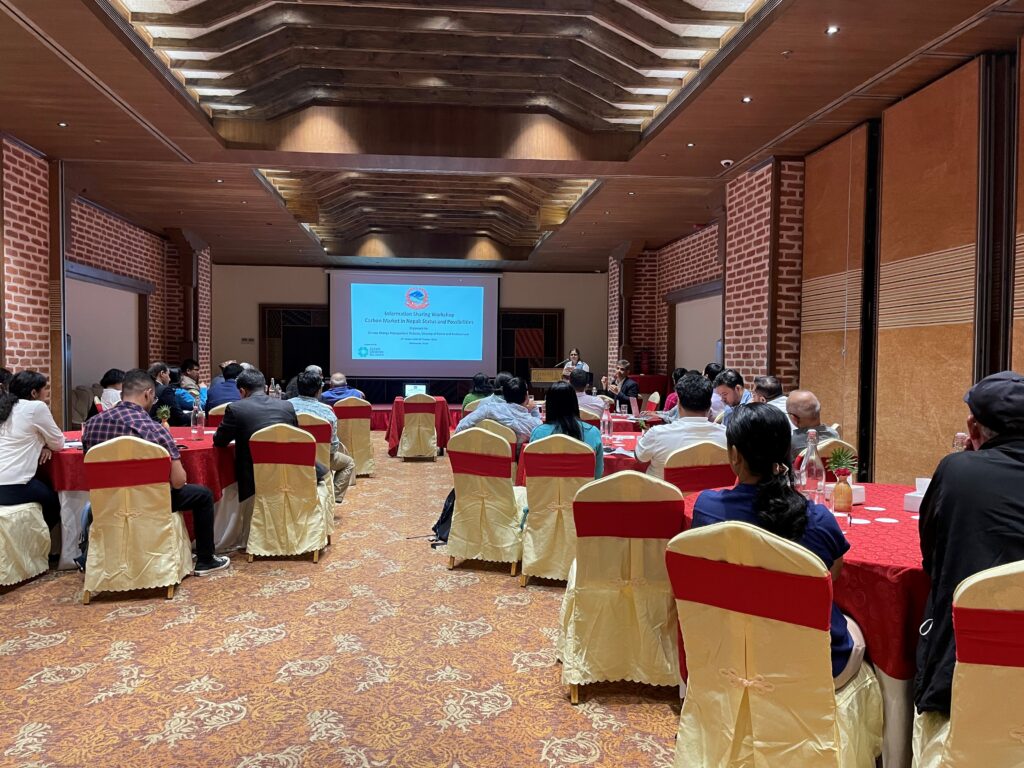VCM Group
VCM Group
Formation of VCM Group

Organizations in the clean energy sector engaged in the Voluntary Carbon Market (VCM) in isolation for many years in Nepal, leading to limited access to VCM activities within the country. Through an initiative led by Sustainable Prosperity Initiative Nepal, along with other private sector entities; non-governmental organizations (NGOs) and international non-governmental organizations (INGOs) working in the clean energy sector, a coalition called the Voluntary Carbon Group was formed to advance the VCM agenda and facilitate the sharing of experiences with the Nepal government and private sectors. The Voluntary Carbon Group consists of key organizations like Urja Developers, Practical Action, UNDP, CCA, Ajummery Bikas Foundation, Sustainable Prosperity Initiative Nepal, SAHAS Foundation, BSP-Nepal, Sustainable Environment Foundation, Riddi Power Company Limited, Muktinath Krishi Company Ltd. The Voluntary Carbon Group aspires for improved access to voluntary carbon trading in the country and to do so, it has aligned itself with international standards akin to Article 6 of the Paris Agreement. The result of this collaboration will also foster partnerships between private entities and the government to collectively achieve climate goals and contribute to a more sustainable and resilient future. Regular meetings, discussions and knowledge-sharing sessions are part of the Voluntary Carbon Group’s operational priorities.
https://www.spotlightnepal.com/2023/07/24/carbon-trade-rules-obstacle/
http://www.nepalenergyforum.com/carbon-trade-rules-obstacle/
Information Sharing Workshop

The first Information Sharing Workshop on the Voluntary Carbon Market (VCM) in Nepal was organized by the Climate Change Management Division of the Ministry of Forest and Environment, with support from the Clean Cooking Alliance (CCA). This represents a significant leap in the country’s efforts to promote VCM related activities nationally. The event convened key stakeholders, including government officials, academics, NGOs, INGOs, and the private sector..
Key Insights:
- The workshop acknowledged the government’s role as a facilitator rather than a regulator in the VCM.
- With a track record of channeling significant financial resources into global projects, VCM presents Nepal with a unique opportunity. These projects, ranging from renewable energy to clean cook stoves and forest conservation, align with the United Nations’ Sustainable Development Goals.
Outcome and Initiatives:
- Inaugural Presentations: Key presentations shed light on government initiation in the carbon market, Nepal’s carbon market landscape, and the significance of Paris Agreement Article 6, enriching participants’ understanding.
- NGO and Private Sector Perspectives: NGOs and private sector entities expressed interest in VCM participation but highlighted challenges in obtaining approvals due to a lack of a clear regulatory framework.
- CCA’s Commitment: The Clean Cooking Alliance reaffirmed its commitment to achieving clean cooking targets and emphasized the crucial role of VCM access in advancing their sustainable development initiatives.
https://www.spotlightnepal.com/2023/10/21/nepal-vcm-no-objection/
Pre-COP28 Meeting

The meeting provided an opportunity to understand the key expectations and priorities for COP 28, particularly in the context of the voluntary carbon market. The insights shared by Dr. Bimal Raj Regmi, a Climate Change expert and a member of the National Council for Environmental Protection and Climate Change Management and Mr. Ugan Manandhar, Climate and Environment Advisor, FCDO, offered valuable perspectives on the upcoming conference and the role of the VCM group in shaping the discussions and outcomes at COP 28.
Key Insights
- The Integrity Council for Voluntary Carbon Markets has taken significant strides in establishing a standardized set of credit criteria, referred to as the Core Carbon Principles. However, Article 6.4 of the Paris Agreement has the potential to become the new benchmark for ensuring integrity.
- COP28 could mark a step toward a closer relationship between voluntary carbon markets (VCMs) and compliance markets, depending on Article 6 negotiations on issues such as eligibility on new activities, which will be crucial for countries like Nepal as the VCM has the potential to mobilize private sector resources for climate action and sustainable development of Nepal and also to attract investments for clean energy and sustainable development projects.
- The Nepalese government, recognizing the potential of VCM to bring in resources, is undergoing policy-level changes, and VCM is listed as a key priority in Nepal’s Position Paper for COP28.
- COP28 must increase momentum, emphasizing the importance of collective responsibility and outlining how various stakeholders can work together to address integrity throughout the carbon value chain.
- Understanding the correlation between VCM industry guidelines and the resolutions of Article 6.4 negotiations in Dubai is crucial.